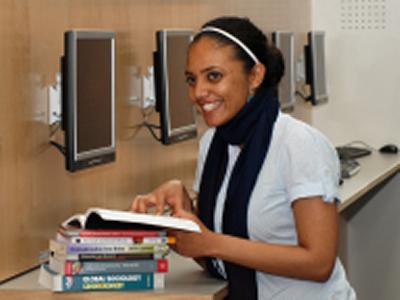Maryam Kassim Alriyamy MSc Sociology and Social Policy, PhD in Sociology and Social Policy, 2012

Hi, I'm Maryam Kassim Alriyamy and I studied MSc Sociology and Social Policy, PhD in Sociology and Social Policy within Social Sciences: Sociology, Social Policy & Criminology at the University of Southampton.
The University has a diverse student body, which means that it's an excellent opportunity to interact and network with people from all over the world.
Q: Why did you choose to study at the University of Southampton?
I first came to the University of Southampton in 2003. I enrolled on the MSc Sociology and Social Policy.
My initial reason for choosing it was that members of my family were living in Southampton. I also felt that the University had a really good track record, especially after reading about my division.
Q: How did you find your MSc experience?
I was pleased to find that it was exactly where I wanted to be, particularly after a positive meeting with the MSc postgraduate coordinator. Needless to say, my MSc experience was great. I made really good friends who I still keep in touch with, which made the hard work all the more worthwhile, as we discussed our experiences during the course. My MSc experience was why I decided to come back in 2007/08 for the MPhil/PhD.
I've developed respect for the academic staff, who are experts in their field and encourage students to further their academic aspirations.
Q: How do you find the interactive and international environment?
The University has a diverse student body, which means that it's an excellent opportunity to interact and network with people from all over the world. I also share my office space with students from other academic disciplines, which sometimes leads stimulating intellectual debates on current events – well at least when we aren't too engrossed in own postgrad work.
Q: What did you do before starting your PhD?
Before embarking on the MPhil/PhD segment of my life, I was a community health lecturer at Oman Medical College back home. I tailored the course to come from a social science perspective by looking at how social behaviours and beliefs directly impact our perceptions of wellbeing and influence our decisions to seek professional healthcare.
Within the college environment, I sharpened my teaching skills on students whose first language was Arabic not English.
My experience teaching at Oman Medical College made me realise my interest in academic work but I knew that I needed further skills development, as well as qualifications, to teach in an academic environment.
Q: How is your postgraduate degree funded?
My postgraduate study is partially funded by a Faculty of Law, Arts and Social Sciences (LASS) international bursary and partly by myself. Actually I found out about the bursary from my supervisor but the University website documents all the available sources of funding for international students.
Q: How do you find postgraduate life?
Postgraduate life is completely different from undergraduate life because you determine your workload and you are free to pursue your interest in a particular research area. This can be a bit daunting but also absolutely rewarding. I consider my postgraduate course as a full-time job. I have a designated office space, which means I come in every morning with an agenda of what I want to accomplish for the day.
The hardest part is probably sticking to the agenda but the best part is that I am my own boss, except when I have to meet my supervisors. But the fact is that I'm studying, which is motivating, and I enjoy my work.